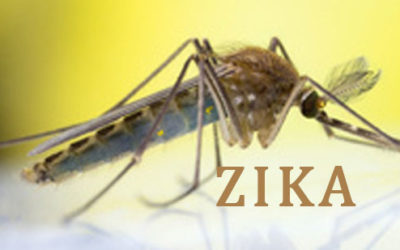Travel Alerts & Notices from the CDC
Travel notices from the CDC are designed to inform travelers and clinicians about current health issues related to specific destinations. These issues may arise from disease outbreaks, special events or gatherings, natural disasters, or other conditions that may affect travelers’ health. See below for more information on our travel notice categories.
For country-specific information about Safety and Security, visit the US Department of State Travel Alerts and Warnings page.
Ebola virus disease – Democratic Republic of the Congo
The outbreak of Ebola virus disease (EVD) in the Democratic Republic of the Congo is at a key juncture. Recent trends (Figure 1) suggest that control measures are working. Over the past week, contact follow-up rates have substantially improved, most patients recently admitted to Ebola treatment centres (ETC) received therapeutics within hours of being confirmed, and ring vaccination activities have scaled to reach contacts (and their contacts) of most confirmed cases reported in the last three weeks. However, the outbreak trend must be interpreted with caution.
Read more at: http://www.who.int/csr/don/31-august-2018-ebola-drc/en/
International Travel During COVID-19
CDC Recommends…
Do not travel internationally until you are fully vaccinated. If you are not fully vaccinated and must travel, follow CDC’s international travel recommendations for unvaccinated people.
Fully vaccinated travelers are less likely to get and spread COVID-19. However, international travel poses additional risks, and even fully vaccinated travelers might be at increased risk for getting and possibly spreading some COVID-19 variants.
The COVID-19 situation, including the spread of new or concerning variants, differs from country to country. All travelers need to pay close attention to the conditions at their destination before traveling.
CDC will update these recommendations as more people get vaccinated, as rates of COVID-19 change, and as additional scientific evidence becomes available.
Read more here: https://www.cdc.gov/coronavirus/2019-ncov/travelers/international-travel-during-covid19.html
Domestic Travel During Covid-19
People who are fully vaccinated with an FDA-authorized vaccine or a vaccine authorized for emergency use by the World Health Organization can travel safely within the United States.
CDC will update these recommendations as more people are vaccinated, as rates of COVID-19 change, and as additional scientific evidence becomes available. This guidance applies to travel within the United States and U.S. territories.
https://www.cdc.gov/coronavirus/2019-ncov/travelers/travel-during-covid19.html
Yellow fever – France – French Guiana
On 14 August 2018, the World Health Organization (WHO) received information from the WHO Regional Office for Europe about a confirmed yellow fever case in French Guiana. On 10 August 2018, the French National Reference Centre for arboviruses (Institut Pasteur de la Guyane) reported an autochthonous (locally acquired) laboratory confirmed case of yellow fever in an unvaccinated 47-year-old Swiss man in French Guiana. Since April 2018, the case patient has lived in a forest area in the commune of Roura in French Guiana. On 4 August 2018, he developed flu-like symptoms, and on 8 August 2018 he was hospitalized in Cayenne, French Guiana, with fulminant hepatitis. On 9 August 2018, he was transferred to Paris, France where he received a liver transplant.
Read more at: http://www.who.int/csr/don/24-august-2018-yellow-fever-french-guiana/en/
Middle East respiratory syndrome coronavirus (MERS-CoV) in United Kingdom of Great Britain and Northern Ireland
On 22 August 2018, the International Health Regulations (IHR 2005) National Focal Point for the United Kingdom of Great Britain and Northern Ireland notified WHO about a laboratory-confirmed Middle East respiratory syndrome coronavirus (MERS-CoV) infection. The patient is a resident of the Kingdom of Saudi Arabia who was visiting the United Kingdom of Great Britain and Northern Ireland.
Read more at: http://www.who.int/csr/don/31-august-2018-mers-united-kingdom/en/
Human infection with avian influenza A(H7N9) virus – China: Update
Since March 2013, when the avian influenza A(H7N9) virus infection was first detected in humans, a total of 1567 laboratory-confirmed human cases, including at least 615 deaths, have been reported to WHO (Figure 1) in accordance with the International Health Regulations (IHR 2005). So far, all but three reported cases have occurred in China. In the latest wave (the sixth wave, which began in October 2017), only three human cases have been detected; meanwhile there have been fewer A(H7N9) virus detections in poultry and environment samples, according to reports from mainland and the Hong Kong Special Administrative Region China.
Read more at: http://www.who.int/csr/don/05-september-2018-ah7n9-china/en/
Health Infrastructure Breakdown in Venezuela
CDC recommends that travelers avoid all nonessential travel to Venezuela. The country is experiencing outbreaks of infectious diseases, and adequate health care is currently not available in most of the country.
Read more at: https://wwwnc.cdc.gov/travel/notices/warning/health-infrastructure-breakdown-venezuela
Meningococcal disease in Togo
Since 1 January 2017, 201 suspected cases of meningitis with 17 deaths were reported by 19 health districts.
http://www.who.int/csr/don/23-february-2017-meningococcal-disease-togo/en/
Avian Flu (H7N9) in China
Chinese health authorities have confirmed human cases of avian influenza A (H7N9) since September 2016. CDC advises people traveling to China to avoid contact with poultry (including poultry markets and farms), birds, and their droppings and to avoid eating undercooked poultry. Infected birds that appear healthy may still be able to transmit this virus to humans.
Zika Virus in Palau
Public health officials have reported that mosquitoes in Palau are infected with Zika virus and are spreading it to people.


